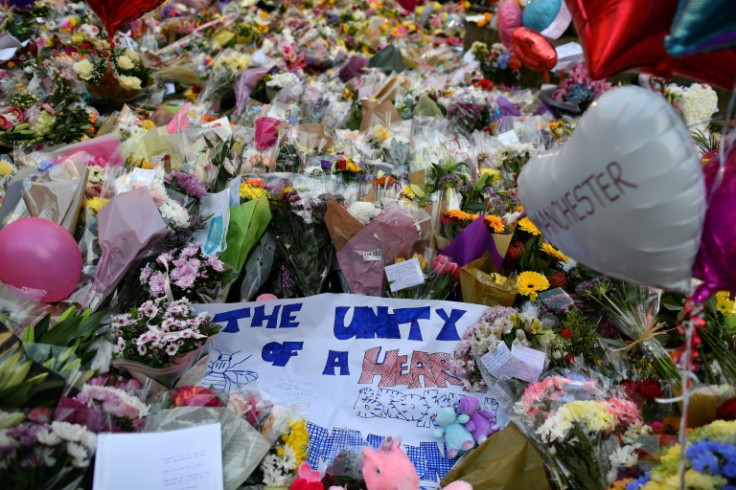UK spies missed chance to stop Manchester terror attack
The Manchester bomber who killed 22 people at an Ariana Grande concert in 2017 might have been stopped if Britain's MI5 security service had acted on vital intelligence, an official inquiry found Thursday.

The Manchester bomber who killed 22 people at an Ariana Grande concert in 2017 might have been stopped if Britain's MI5 security service had acted on vital intelligence, an official inquiry found Thursday.
The domestic security agency apologised, while relatives of the victims condemned its "devastating" failings and the UK government vowed to learn the lessons.
"Our beautiful little girl lost her life because of the failings of the security services and today's report acknowledges that MI5 might have prevented the bombing," said Andrew Roussos, father of the youngest victim, eight-year-old Saffie-Rose Roussos.
He said the "cataclysmic failure" by MI5 to act on "all of the red flags" surrounding the bomber showed the agency was "not fit to keep us safe".
MI5 director-general Ken McCallum said he was "profoundly sorry that MI5 did not prevent the attack".
"I deeply regret that such intelligence was not obtained," he said.
Parts of the report were withheld on national security grounds, meaning the exact nature of the missed intelligence remained confidential.
The suicide attack, as concert-goers were leaving the show at the Manchester Arena in northern England, was carried out by 22-year-old Salman Abedi, who was from Manchester but of Libyan descent.
Inspired by the Islamic State group, he used a homemade shrapnel bomb to target crowds of mostly young people who had been attending the concert by the US pop star, as well as parents who had come to pick up their children.
Delays in relation to one of two pieces of intelligence led to the "missing of an opportunity to take a potentially important investigative action", inquiry chairman John Saunders said in his report.
The retired high court judge was presenting his third and final report into the atrocity following an 18-month inquiry.
He said Abedi, whose family had fought in Libya's civil wars and who prayed at a Manchester mosque known for extremism, should have been referred to a government anti-radicalisation programme.
Abedi could have been stopped at Manchester Airport on his return from Libya four days before the attack, and might also have been followed to a car where he stored the explosive, the judge found.
MI5 failed to immediately write up a report on one of the pieces of intelligence, he said, without revealing its nature.
But Saunders stressed: "Based on everything the (MI5) Security Service knew or should have known, I am satisfied that such an investigative action would have been a proportionate and justified step to take."
"Although I accept that Salman Abedi demonstrated some security consciousness and that this might have affected the efficacy of the investigative action that I have identified, there was the real possibility that it would have produced actionable intelligence," the judge added.
Richard Scorer, a lawyer who represented 11 of the families at the inquiry, said that Saunders had revealed agonising missed opportunities.
"As a result of these failures, at the very least, a real possibility of preventing this attack was lost. This is a devastating conclusion for us," he said.
"The failures exposed in this report are unacceptable."
Interior minister Suella Braverman paid tribute to Saunders and the families of those who lost their lives to Abedi's "act of pure evil".
Prime Minister Rishi Sunak's spokesman said the government was "committed to learning the lessons of this inquiry and doing everything in our power to strengthen the country's defences and keep British people safe".
In 2020, the suicide bomber's brother Hashem Abedi was jailed for life with a minimum term of 55 years for playing an "integral part" in the Manchester attack.
Another brother slipped back to Libya to join his parents there. The family refused to take part in the inquiry.
© Copyright AFP 2023. All rights reserved.





